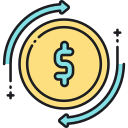Table of Contents
From time to time, mortgage rates drop and reach record lows. The COVID-19 pandemic is an example of an event that resulted in a significant drop in interest rates.
However, COVID-19 also made it more difficult for self-employed borrowers due to uncertainty in economic conditions.
If you’re considering refinancing your mortgage, now is a great time as mortgage rates are near historic lows.
Before you rush into it here are 7 things you need to know before you refinance your mortgage.
Knowing the requirements before you apply can help you learn whether you qualify for a refinance loan or not.
Here are the top seven requirements to understand before you apply.
1. Have a Valid Reason or Tangible Benefit.
Many of our customers find a benefit to refinancing. This includes a lower mortgage payment, taking cash out, reducing the interest payments on the loan or paying of the house early.
To Obtain a Lower Interest Rate
What is the interest rate on your mortgage? If it is higher than the current rates available, refinancing is the only way to take advantage of the lower rates.
When you refinance, you get a new loan with a new interest rate. A lower rate will result in having lower mortgage payments and will help you pay less money in interest.
If you want lower mortgage payments and can get a lower interest rate through refinancing, then you should consider going through with it.
Always work with a mortgage professional. There are many factors to rate such as credit, loan to value, and lender credits vs discount points. Finding the right solution to meet your specific goals is why mortgage brokers like Choice Home Mortgage exist.
To Switch to a Fixed-Rate Mortgage
The second reason people consider refinancing is to switch from an adjustable-rate mortgage (ARM) to a fixed-rate loan. ARMS are unpredictable, and that is the one feature people dislike about them.
With a fixed rate, you will never have to worry about your rate increasing. You will have a steady mortgage payment amount for the life of your loan.
To Take Cash Out
Refinancing as a way to take cash out of your home is also a valid reason.
You can do this if you have equity in your home.
Taking cash out can be used to pay off high-interest debts, start a business, remodel the house, or for investment purposes.
To Eliminate Private Mortgage Insurance
You can also eliminate private mortgage insurance (PMI) by refinancing if you have enough equity in your home.
If you’re tired of paying PMI and feel that your house is now worth enough, refinancing is the ideal way to stop your PMI requirement.
In most cases, you will need to bring the loan to a value below 80% to remove PMI.
2. Meet the Financial and Credit Requirements
When refinancing, you must also meet financial and credit requirements
To do this, you must prove you can repay the loan.
You must also prove that you are creditworthy enough for the lender to approve your loan application.
Here are some details to know about each category:
Financial Requirements
One part of the application process is providing application documents such as W2, Paystubs, Tax Returns, Award Letters and other proof of income.
Lenders also calculate ratios when evaluating a person’s finances. One popular ratio is the debt-to-income (DTI) ratio.
The answer to this ratio reveals how much debt you must pay compared to the income you earn. If your DTI is too high, you will not qualify for a mortgage loan.
It is also important to show two years of consistent income. Most lenders will average your income over two years when calculating DTI.
Self-employed borrowers, you will also need to have both your personal tax returns and business tax returns if you own more then 25% of a business. We also recommend to have your accountant prepare a year-to-date (YTD) profit and loss statement (P&L).
What can we help you with today?
Credit Requirements
Lenders also have credit score requirements for loan approvals. You might want to know what credit score is needed to refinance, but there is not just one universal answer to this.
The credit score you need depends on the loan program you plan to use. If you use an FHA loan for the refinance, you would need a lower score than if you used a conventional loan.
It’s also wise to look at your credit score before applying, so you have an idea of where you stand. You’ll likely need a score of at least 600 to qualify for most loan types.
3. Provide the Necessary Documentation
Many lenders will require a full and complete package before they review and conditionally approve. A complete package typically includes the following items:
- Pay stubs
- W-2s or tax returns
- Current financial statement
- Current Mortgage Statement
- Proof of Insurance
- Copy of ID
- Award Letters
- IRA or 401K Statements.
Your lender will supply you with a list of the documents you must provide with your application. Additionally, the lender will ask you to sign documents that allow them to verify your employment, income, and credit.
You need the same documents to apply for a refinancing loan as you do when applying for a loan to buy a house.
4. Meet the Timing Requirements
In most cases, you can refinance at any time. However, some lenders may require you to wait at least six months from the date you took your original loan if refinancing with the same lender.
5. Prove You Have Enough Equity Through an Appraisal
Most lenders have requirements in place that relate to the value and equity of a home. Lenders set these guidelines to avoid issuing loans for amounts that are higher than the values of the homes.
To find out how much equity you have in your house, subtract your mortgage balance from the home’s current value. If you owe as much as the house is worth, you have no equity in the property. Getting a loan, in this case, would not be easy.
Lenders place a lot of value on equity amounts when approving all types of mortgage loans, including new home purchases. If you feel you have enough equity, you can apply now for a refinancing loan.
Depending on if you are getting cash out, the type of loan product, and loan to value we may be able to get what is known as a PIW (property inspection waiver).
6. Review the Cost vs Benefit
There is always a cost to refinancing. However, oftentimes lender credits can offset or cover some of the costs. In most cases, borrowers never have to come out of pocket and the cost can be rolled into the loan.
Cost can include:
- Loan origination fee (paid by borrower or lender)
- Appraisal fee
- Title and escrow fees
- Credit check fees
- Recording fees
- Underwriting and processing fees
All costs will be clearly provided in the loan estimate, commonly referred to as the LE.
Lenders often offer lender credits to help offset the costs. It is important to work with a mortgage broker or wholesale lender like Choice Home Mortgage and will shop with the top lenders to find the best possible deal to match your unique situation.
7. Plan to Stay There Long Enough to Make It Worthwhile
Finally, you should consider one last thing before refinancing – how long you plan to stay in this house. Because you must pay fees to refinance your loan, you should make sure you live in the house long enough to recoup these costs.
To determine the answer to this, you can use a simple calculation:
- Add up the closing costs you must pay to refinance
- Determine the amount you will save per month on your new house payment
- Divide your total closing costs by the amount you save each month
The answer you get reveals the number of months it will take for you to recoup the closing costs you paid to refinance. If the answer is 30, it means it will take 30 months to recoup the costs.
In this case, if you are planning on selling your house in one year, refinancing would not be worthwhile. If you plan on selling in three years, refinancing would be advantageous.
Take Advantage of Low Rates by Applying for a Refinance Loan
If you have a legitimate reason to refinance, and if you believe that you meet the refinance requirements, contact us.
We offer all kinds of mortgage loans and can help you find the right option for your situation. Visit our site for more information about our services, products, and interest rates, or give us a call to learn more.





Comments are closed.